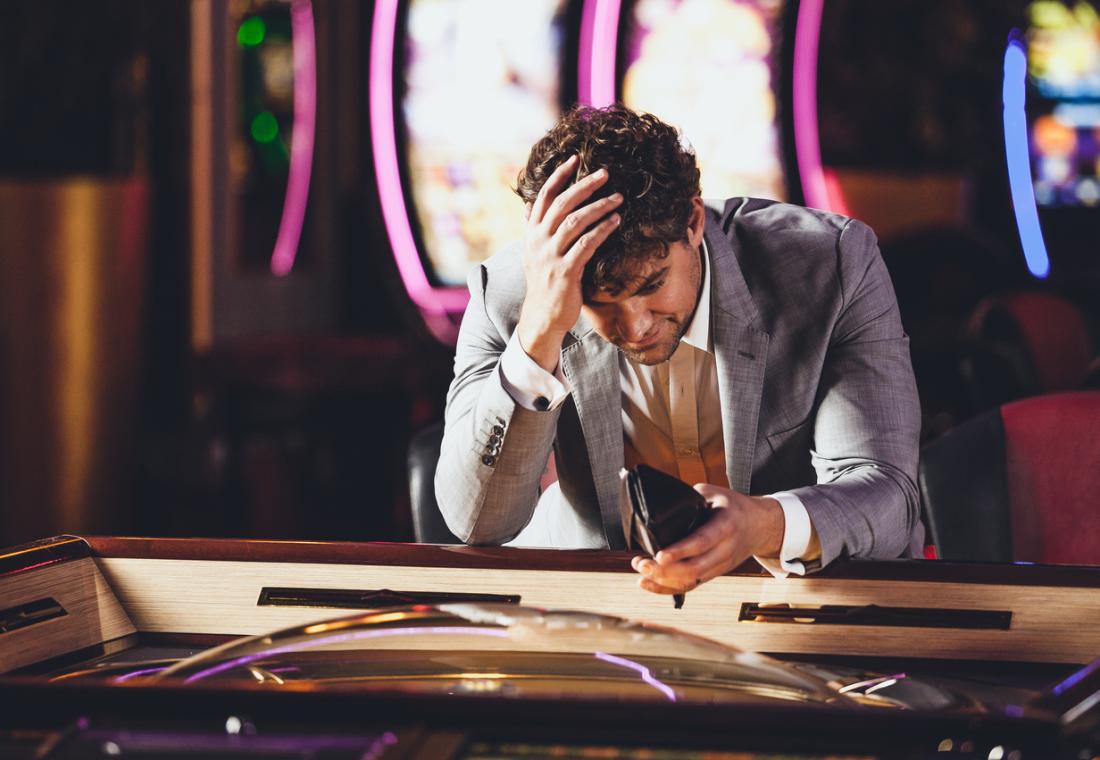Like any addiction, compulsive gambling can be difficult to stop. You may find it embarrassing to admit that you have a problem, especially since many people gamble socially without developing an. If your gambling addiction is terrible, you will need as much assistance as you can get to help you stop gambling. Get Help for Underlying Mood Disorders. Many people with a gambling problem also suffer from depression, anxiety, stress, or other substance abuse issues. These can both trigger compulsive gambling as well as make it worse. Compulsive Gambling. Compulsive gambling can be defined as an irresistible urge to continue gambling, even when the activity is taking a devastating toll on your daily life. It is a serious addiction that can result in lost time, financial stress, and personal shame. The treatment of your gambling addiction will be managed under the care of a mental health professional, who will use various behavioral therapies and other techniques to help you overcome your addiction. 2 Be honest with your doctor. When you go see your doctor or your mental health professional, you should be honest.
Compulsive gambling is a damaging disorder that destroys families, reputations, and finances. The best gambling addiction treatment programs provide individuals with multidisciplinary approaches. Individuals who abuse alcohol or drugs may also need help quitting those substances. Not every addiction treatment program is qualified to help individuals addicted to gambling, though. Choosing the best gambling problem treatment means finding a rehab center that specializes in compulsive gambling recovery.

Things to Consider When Choosing a Compulsive Gambling Treatment Program
Gambling addicts often respond to gambling in the same biochemical way individuals who use alcohol and drugs do. Getting the same rush means taking bigger and bigger risks. Obsessive thoughts take over, and gambling becomes the sole focus of the struggling individual’s life. Even when severe consequences result from gambling, the affected individual is unable to stop. The right compulsive gambling treatment program should:

- Provide psychological treatment and pharmacological intervention, if necessary. Individuals with compulsive gambling disorder may find symptomatic relief through one-on-one therapy. Certain medications, such as non-addictive antidepressants and mood stabilizers, may also be helpful during compulsive gambling treatment. Seek out programs that employ qualified professionals with experience treating compulsive gambling.
- Diagnose and treat a co-occurring disorder. Many individuals with addiction also suffer from a preexisting, co-occurring disorder such as depression, anxiety, or schizophrenia. This is called dual diagnosis. Individuals with dual diagnosis use the addictive behavior to escape the symptoms associated with the underlying mental health disorder. It is not always easy to identify dual diagnosis, either, because addicted people often develop symptoms that mimic depression and anxiety. If you suspect a preexisting mental health disorder exists, you will need a rehab program that treats dual diagnosis.
- Provide cognitive behavioral therapy (CBT). Cognitive behavioral therapy is a customized, short-term therapy that teaches practical techniques to cope with cravings, deal with stress, and avoid dangerous triggers. It also helps people change persistent thought patterns from negative to positive. CBT is one of the most popular and effective addiction treatments in use today.
- Offer substance abuse treatment. Many individuals with compulsive gambling addiction also abuse drugs or alcohol. If drinking and drug use accompany gambling, you will need a program that can help with both problems. Consider rehab centers that feature medically assisted detox and counseling, as well as access to support groups such as Alcoholics Anonymous and alternative SMART Recovery.
- Provide access to alternative and 12-Step-based gambling self-help groups. Many people find lasting relief through support groups such as Gamblers Anonymous, while others prefer organizations such as SMART. If you are not sure which approach to use, find a rehab center that gives you access to a variety of options.
How To Overcome Gambling Addictions
Recover From Gambling Addiction
How To Cure Compulsive Gambling Anxiety
Gambling addiction is a disorder that has associated with alcoholism, depression and other co-occurring disorders. Recovering is possible, and those who engage in comprehensive treatment often achieve a positive outcome. Rehab may include intervention for substance abuse or another mental health disorder and behavioral therapy. With aftercare and a commitment to long-term self-help group participation, the outcomes improve even more.



